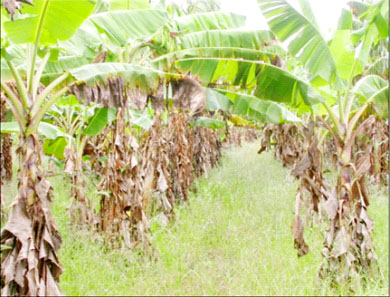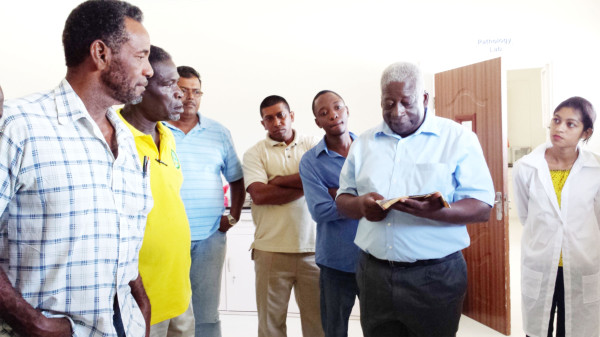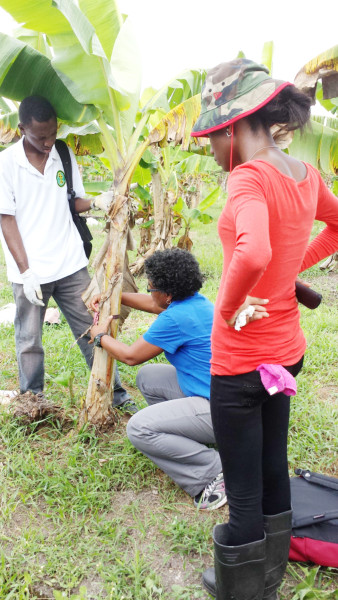The plantain and banana industries in the Caribbean Community (Caricom) are facing a crisis arising out of two crop-related diseases—black sigatoka and Moko—that are currently ravaging plants, Stabroek Business has been told by two experts from the Caribbean Agricultural Research & Development Institute (CARDI).
Surinamese crop disease expert Dr Robert Power and Trinidad and Tobago Plant Pathologist Sharon Jones who have been dispatched to Guyana to help respond to the outbreak of the diseases have told Stabroek Business that the two diseases have combined to bring a virtual halt to the extra-regional export of both plantains and bananas. The exception, Power said, is Suriname, which may have escaped the ravages of the diseases on account of research and modernizing initiatives in the industry.
According to Power, Suriname continues to export more than three million 20-kilo boxes of bananas to Europe annually and may even have increased its bananas to compensate for the shortfall arising out the cessation of exports from other Caricom territories.
The visit here by the two CARDI experts is being funded by the Caribbean Development Bank (CDB) secured by Guyana, Dominica, St Lucia and St Vincent & the Grenadines under the Development of Integrated Management Programmes for the black sigatoka disease which commenced in July last year and is scheduled to end next year.
The two experts have already completed the first week of a two- week workshop at the National Agricultural Research & Extension Institute (NAREI) during which twelve new varieties of plantain and banana imported from Biodiversity International in Belgium and the International Institute of Tropical Agriculture (IITA) in Nigeria have been introduced. These varieties will be cultivated on an experimental basis at farms in Regions 3 and 5 and at NAREI and will be observed until next year to determine how they adapt to environmental conditions here.
Part of the focus of the two experts is to disseminate information to farmers as to how to respond to the diseases. The appropriate response in the case of an outbreak of Moko is to cease cultivation and assess the soil for the cultivation of other crops. Power told Stabroek Business that the spread of the Moko disease can occur through the movement of people from farm to farm.
According to Power, the Ministry of Agriculture in Paramaribo has been pretty thorough in its isolating of areas where the disease has materialized.
Black sigatoka manifests itself primarily during the rainy season in the form of browning leaves, which Jones said should be removed from the tree and left on site turned face downwards.












